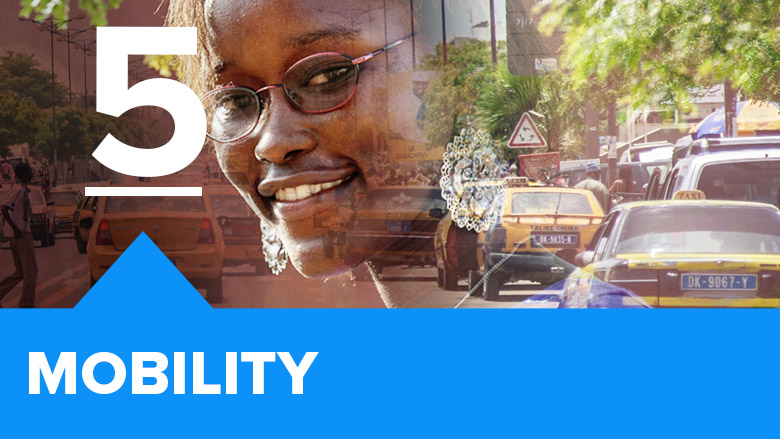Challenge and Opportunity
Transport is crucial for economic and social development, from boosting economic growth and competitiveness to promoting inclusion by connecting people to schools, hospitals and job opportunities. Yet, a third of the world’s rural population lacks access to an all-weather road, almost a fifth of global greenhouse gas emissions come from transport, and more than a million people are killed on the world's roads each year. Sustainable transport is a vital part of the global development agenda with clear implications for combating climate change.
Moreover, by 2030 the UN projects that there will be more than 8.5 billion people on earth. As aspirations for mobility continue to rise, ensuring that transport is low-carbon will be key if we are to connect people to jobs and education, boost shared prosperity and meet critical climate targets.
Investing in low-carbon transport will be particularly critical in developing economies where much of the new urban and transport infrastructure is still to be built. For instance, investing in transport options that enable the movement of goods by rail instead of road can be more energy efficient while reducing logistics costs and vehicular emissions. Overall, low-carbon transport will require investing in a range of tested successes to deliver urban integrated multi-modal transport and transit systems, deploying road, rail, maritime and air transport as well as harnessing disruptive trends, like shared mobility, autonomous driving, and electrification.
Meeting our current and future global transport needs will entail significant investment from both public and private sectors over the coming decade. The World Bank Group is helping to create the conditions that attract investors, collaborating with multiple partners to promote sustainable mobility around the world. This includes support for building a conducive and competitive business environment, providing supply-chain support and innovative financing for infrastructure projects and emerging technologies such as electric vehicles (EV), automated self-driving vehicles, and ride-sharing platforms.
Transformative Action
In India, the World Bank is working with the government to implement the Eastern Dedicated Freight Corridor. This 1,840 km rail stretch will enable faster and more efficient movement of raw materials and finished goods between the north and eastern parts of the country, traversing six of India’s most populous states, and bringing jobs and development to some of the country’s poorest regions.
By moving freight via rail instead of road, the project will significantly reduce the carbon footprint of the goods transported by 55% in 2041-42. The project is also part of the national pledge India made (its Nationally Determined Contribution) in the run-up to the Paris Agreement.
IFC has committed $8 million in equity in Lithium Urban Technologies, India’s first EV fleet operator and end-to-end urban mobility solutions provider. The investment will help expand Lithium’s EV fleet, support its EV pilots in other transport segments, and could potentially transform India’s transport system by contributing to the creation of the ecosystem necessary for electric mobility. The project will be an opportunity to demonstrate the successful application of EV technology in an emerging market and could offer valuable lessons for other global projects.
Key Facts/Figures
- The entire transport sector now accounts for approximately 23% of energy-related CO2 emissions (representing 15% of total GHG emissions). Under a “business as usual” scenario, the share of transport in energy CO2 emissions are expected to grow by 40% between 2013-2040.
- Meeting targets set under the Paris Agreement will require more than halving transport-related emissions by 2050: from the current 7.7 Gt CO2e to 2–3 Gt CO2e.
- Comparing freight transport modes, the external air pollution and GHG emission costs of truck transport are estimated to be about 7.6 cents per-ton-mile higher than rail transport.
- From July 2017-June 2018 the World Bank invested $3.5 billion in sustainable transport in 27 countries –this includes $771 million for mitigation and $1.4 billion for adaptation.
- Since 2005, IFC has invested $716 million in climate-smart transport investments, including public transit projects in Izmir, Istanbul, Bogota, and Lima.
Last Updated: Jan 24, 2019

